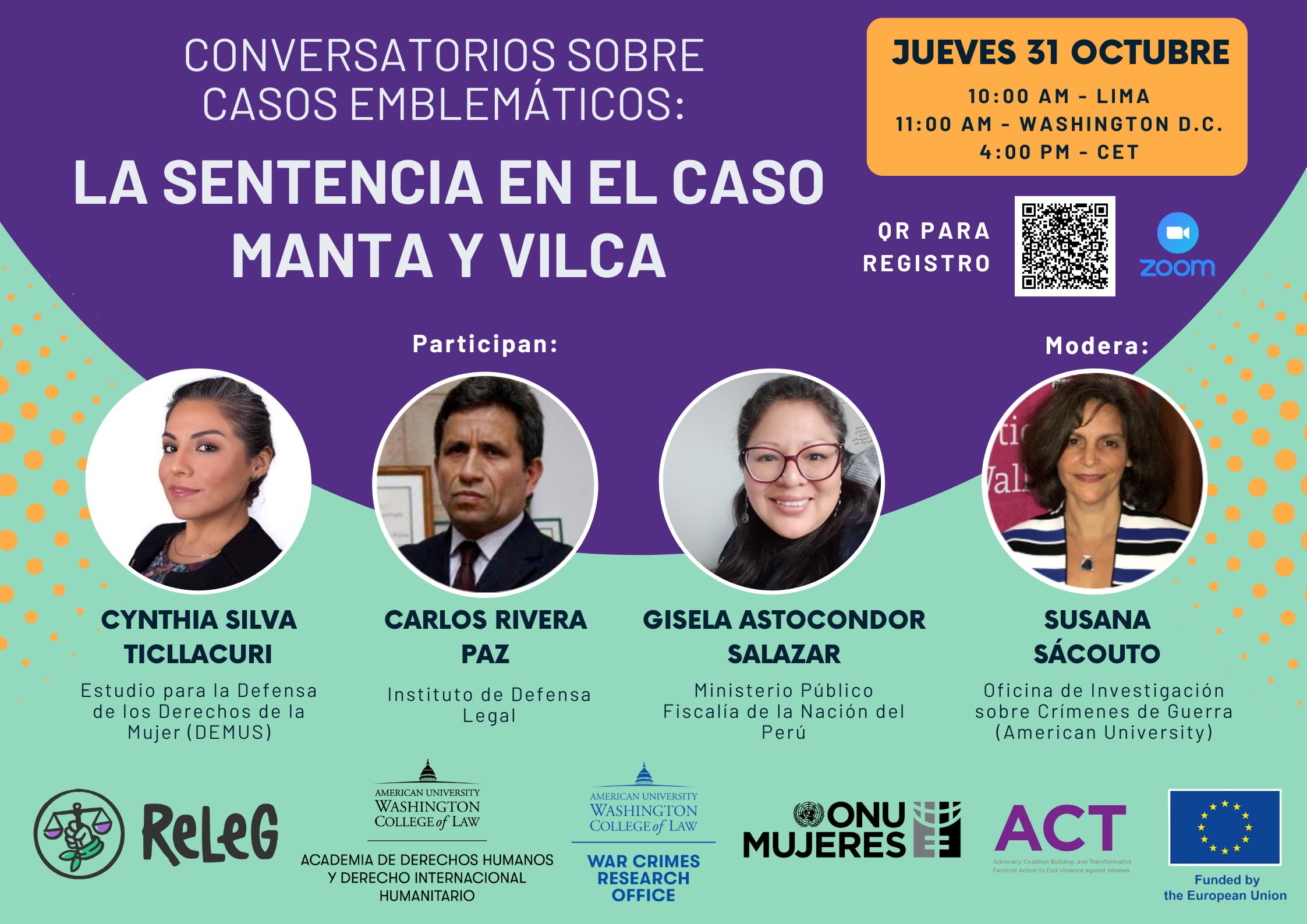Discussions on Landmark Cases: The Ruling in the Manta and Vilca Case

This discussion is part of a series of dialogues to promote greater visibility of the impact of strategic litigation in cases of gender-based violence in Latin America. It was organized within the framework of the ACTUEMOS initiative, driven by UN Women and the European Union, aimed at strengthening women's participation in global and regional advocacy spaces, building coalitions, and fostering transformative feminist action to eradicate violence against women.
The event was moderated by Susana SáCouto, Professor of Law at WCL and Director of the War Crimes Reaserch Office.
We had the privilege to have very experienced panelists:
Cynthia Silva Ticllacuri, Director of DEMUS
Carlos Rivera Paz, Director of the Legal Defense Institute
Gisela Astocondor Salazar, Deputy Senior Prosecutor of the Public Ministry of the Nation of Peru.
In light of the historic ruling issued on June 19 by the Judiciary of Peru, the panel focused on the emblematic Manta and Vilca Case, which investigated acts of sexual violence and other forms of gender-based violence against women and girls in the Manta and Vilca districts in Huancavelica, perpetrated by members of the Peruvian Army in the 1980s during the internal armed conflict in Peru (1980–2000). Forty years after the events and twenty years since the investigations began, the victims achieved—in a historic judicial process—the conviction of 10 former military personnel for crimes against humanity for the sexual assaults committed against them.
During the discussion, the panelists emphasized the challenges faced during the litigation and implementation of the ruling. They also shed light on how the investigation was conducted and the overall impact it had on the victims. The panel provided an opportunity to give visibility to the organizations that were involved in the case, and more importantly, to the victims’ historical achievement after decades of pursuit for truth, memory, and justice.